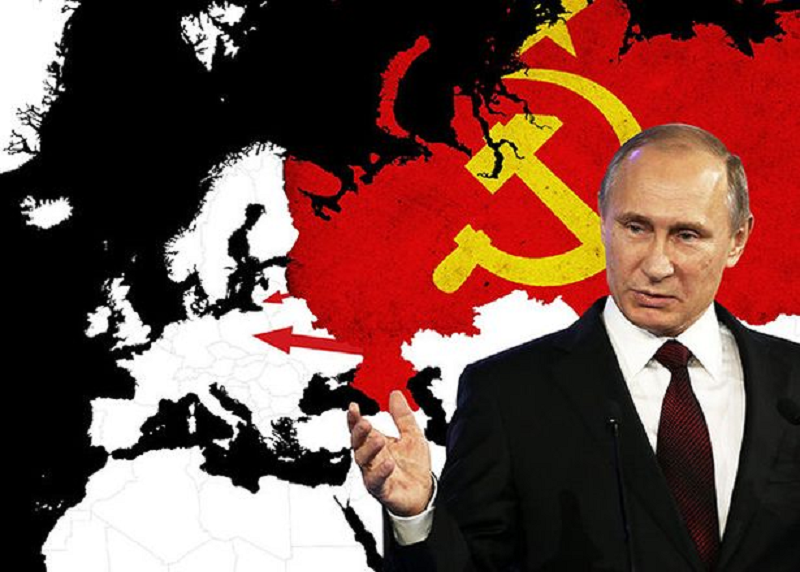COMMUNISM STILL HAUNTS RUSSIA
 Commentary magazine published one of the most important essays of the 20th century in November 1979: “Dictatorships and Double Standards” by Jeane J. Kirkpatrick, who would go on to become President Reagan’s ambassador to the United Nations.
Commentary magazine published one of the most important essays of the 20th century in November 1979: “Dictatorships and Double Standards” by Jeane J. Kirkpatrick, who would go on to become President Reagan’s ambassador to the United Nations.
Right-wing authoritarian regimes, she explained, controlled only the levers of power and thus didn’t tamper with the “habitual rhythms” of traditional societies; nor were they bent on revolution. Thus, they left their countries intact.
Communist systems and ideology sought to remake societies, claiming “jurisdiction over the whole life” of their peoples, and therefore destroyed them utterly from top to bottom for decades to come.
Though Kirkpatrick’s focus was communist regimes in the Third World, no better example of this can be found than Russia, a superficially Europeanized society that sustained more than 70 years of communism.
When the Soviet system finally collapsed in 1991, the result was not stability but a decade of near-anarchy. With such an inheritance, Vladimir Putin’s tyranny followed organically.
Mr. Putin has been described accurately as a fascist, owing to his cult of personality and ferocious ultranationalist assault on Ukraine. It is also true that Mr. Putin has been Soviet in his style of rule. He has amassed more personal power than any Russian since Joseph Stalin.
Many were naive when the Soviet Union collapsed in 1991, thinking communism was consigned to an irrecoverable past. The past three decades have proved to be a mere false start for Russia because the problems of communism are still with us.
The Russian Revolution wasn’t preordained. It was a matter of many tenuous and contingent factors. Had Czar Nicholas II remained in power, Russia would likely have evolved into an imperfect constitutional monarchy, not the murderous monstrosity of the past 100 years.
To channel Kirkpatrick again, the right-wing option clearly would have done much less damage to Russia than the left-wing one has.
Nothing reveals Mr. Putin’s Soviet inheritance better than the structure and performance of the Russian army in the Ukraine war.
Several years of embedding with U.S. ground forces taught me that a Western army is built around its noncommissioned-officer corps: the various sergeants and corporals who impose pride and discipline on the troops.
The Russian military that Mr. Putin sent into Ukraine barely had an NCO corps. That didn’t matter much for the mercenaries and special-forces units that had fought Mr. Putin’s small wars.
But with the large conventional Russian force in Ukraine, the absence of a strong and competent NCO corps has been decisive. This is why so many Russian generals have been killed: Rather than remain in the rear directing large-scale movements as in a Western army, they have been deployed at the front and are therefore vulnerable.
An army that is the product of Western democracy decentralizes decision making down through the ranks. An army that is the product of a Soviet system does not.
A post-Putin Russia is by no means imminent. The West will need to be patient and understanding. Kirkpatrick was herself cautious about imposing democracy on societies that had little experience of it. “In Britain, the road from the Magna Carta to the Act of Settlement, to the great Reform Bills of 1832, 1867, and 1885, took seven centuries to traverse,” she wrote.
As for American history, it “gives no better grounds for believing that democracy comes easily, quickly, or for the asking.”
Daniel Patrick Moynihan reminded us that the central conservative truth is that culture, not politics, determines a society’s success. Russian culture remains the victim of a decades-long revolutionary left-wing regime followed by a Putinesque variation.
The army’s rot is reflective of dark forces in Russian society and politics at large—forces that would likely reveal themselves in the event of a power vacuum.
If Mr. Putin’s military defeat in Ukraine does ultimately lead to unrest in Moscow, the drama will only heighten. A post-Putin Russia will continue to be Europe’s greatest geopolitical challenge, and so we should be wary about quick fixes in Russian society or politics.
But because Russian bestiality in Ukraine is in part the end result of a century of ideology, it follows that a break from ideology offers the best hope for the future. A day may yet come when the West will have to help Russia.
Kirkpatrick, ever the hopeful realist, ended her essay thus: “Liberal idealism need not be identical with masochism, and need not be incompatible with the defense of freedom and the national interest.”
Robert Kaplan holds a chair in geopolitics at the Foreign Policy Research Institute. His most recent book is “Adriatic: A Concert of Civilizations at the End of the Modern Age.”

